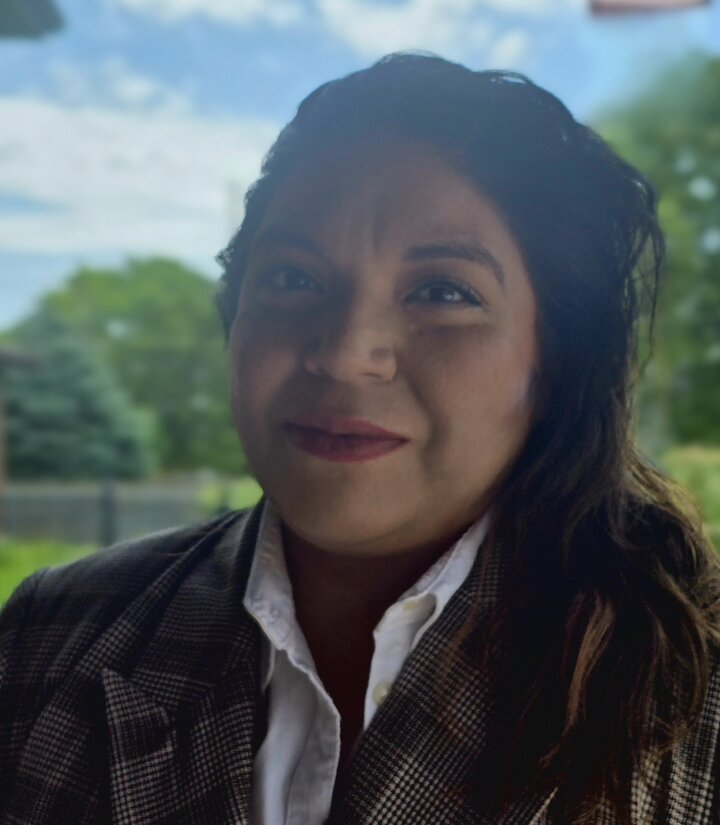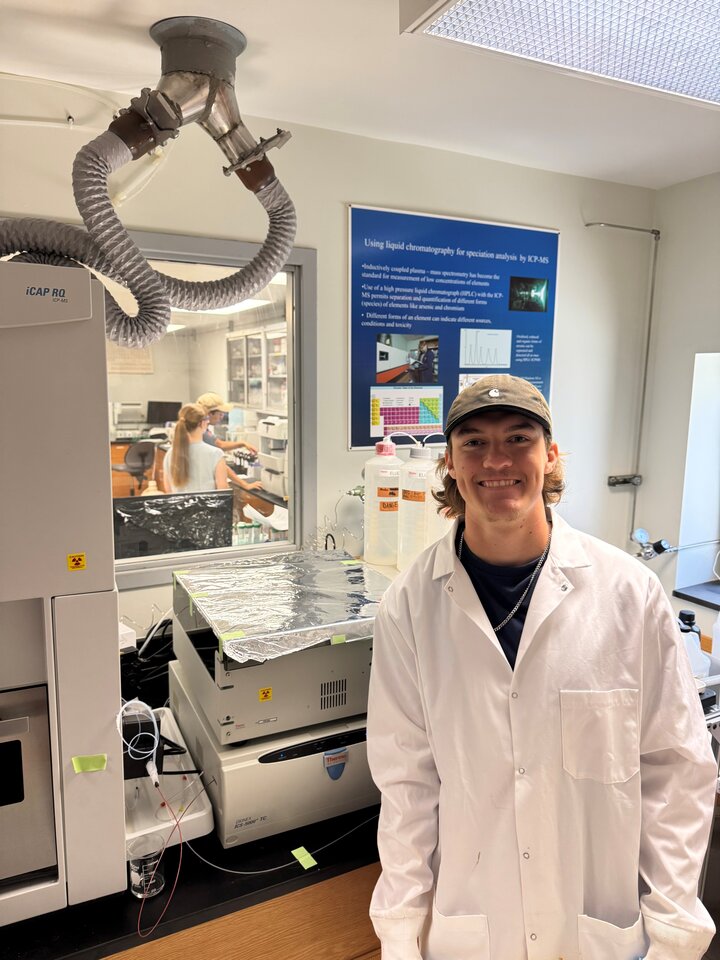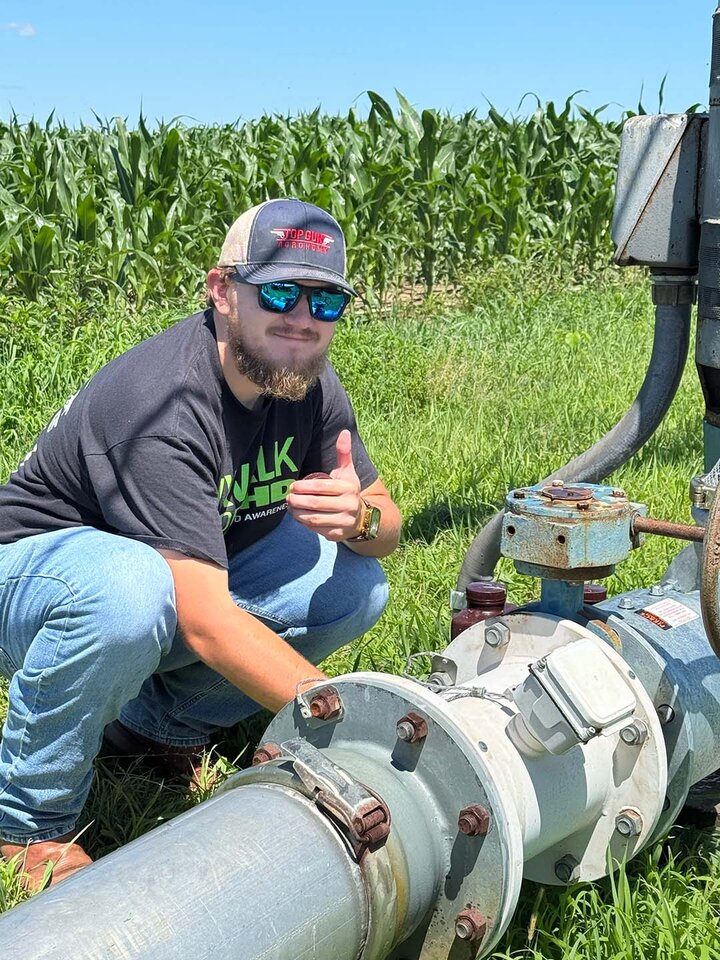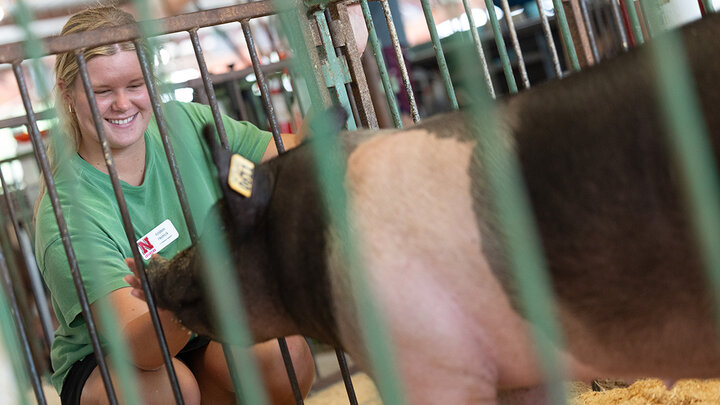As part of the mission to train future water researchers and arrange research addressing water problems and the understanding of water, the Nebraska Water Center has launched a new fellowship opportunity. Undergraduate students in Nebraska that are studying water sciences were invited to apply for the 2025 Undergraduate Student Research Fellowships to work with University of Nebraska faculty to help complete a research project leading to a publication. The Nebraska Water Center Undergraduate Student Research Fellowships are funded by the U.S. Geological Survey’s 104b grant program. NWC intends to host this fellowship each year as funds allow in order to support the next generation of water scientists in Nebraska.
Three undergraduate students were selected for the 2025 fellowship cohort and have been working on research projects across campus this summer. These students have outlined their experience to share what they’ve learned personally and professionally.
Evelyn Reyes

My name is Evelyn Reyes, and I am a senior undergraduate student at the University of Nebraska-Lincoln. Currently, I am conducting research for Dr. Shannon Bartelt-Hunt specifically on Connecting Anti-Microbial Resistance Agricultural Decisions and Environmental Systems. The research consists of collecting water samples bi-weekly from four locations along Shell Creek. Then, analyzing it for different resistant bacteria. Simultaneously, we also conduct tests for microplastics through the water samples and sediment samples. These tests are done to determine the concentration level moving along the water stream.
This research fellowship program has helped me tremendously, not just educationally but also in my personal life. Not only have I received beneficial real-world skills in a research scenario, but I have also found my ability to take on rigorous and substantive pursuits. It has assisted me in determining my professional direction in my field, demonstrating how effective research can contribute to finding solutions to societal and technological issues. In the future, I see myself further researching in the field of environmental engineering and pursuing graduate studies. I would most definitely recommend any student to take advantage of this opportunity. More than research, it represents an opportunity to develop and explore the opportunities possible within your field.
Zack Hukill

My name is Zack Hukill, I am a senior biochemistry major at Doane University. Working with Dr. Chris Huber and Dr. Dan Snow, my research is centered around the speciation of arsenic in water samples collected from private wells across southeast and central Nebraska. There are two types of arsenic (As) found in water, Arsenic (III) and Arsenic (V). Both forms of arsenic are toxic, however As (III) has been known to cause cancer and is the more concerning species of arsenic. Additionally private wells are not tested regularly like the public water supply is. My research goal is to learn more about the prevalence of As (III) and As (V) in the groundwater in southeastern Nebraska while also providing these homeowners with important information regarding their water quality.
The research fellowship has provided me with experience in leading and conducting scientific research with instruments not available to me at Doane. Additionally, the research fellowship has given me experience with aspects of research that are often overlooked. One example being the logistical requirements of running research. In order to sample well water at people’s homes, we needed a way for them to sign up and provide consent forms. Before the research fellowship I had no experience with this aspect of a project like this and honestly would’ve easily overlooked it. After this project ends, I plan to focus on my senior research project at Doane. That project is very similar to this one but instead involves the speciation of mercury in fish caught in lakes in central and southeast Nebraska. The experience I have gained in the research fellowship program makes me very excited and confident in both the arsenic project and in my future senior research. I would tell anyone thinking about applying for the next fellowship opportunity to absolutely do it, because gaining experience as valuable as this is extremely difficult in a normal classroom setting and is crucial for entering the professional world.
Chase Lewandowski

My name is Chase Lewandowski. I am going to be a junior at the University of Nebraska-Lincoln, double majoring in plant biology and microbiology in the College of Agricultural Science and Natural Resources. My research this summer focuses on investigating the impact of the groundwater microbial community on surface soils. In Nebraska, groundwater serves as a primary irrigation source for many agricultural producers. However, little is known about the subsurface viral and bacterial implications on soil microbial ecology. In this project, we are identifying members of the microbial communities in the groundwater and soil over the irrigation season to determine the contributions of groundwater to the soil microbial community. The faculty member I am working with is Dr. Karrie Weber, Professor in the School of Biological Sciences and Department of Earth and Atmospheric Sciences, who has been very helpful in assisting me with methods and data analysis.
I have learned a great deal since I began this experience. From developing personal skills, like lab practices and organization, to professional skills, this lab has been a great example of what is expected from a professional researcher. I feel much more comfortable communicating scientifically with my peers and colleagues, thanks to this experience. This has had a very positive impact on my college experience. I get to work with other researchers who are interested in the same topic as I am and watch how they approach a project. It’s a great example of what I need to learn to do in the future if I am to be a researcher. I plan to continue my research throughout the year by analyzing different aspects of the microbiome found in groundwater and soil. My advice for a fellow undergraduate pursuing this opportunity is to have patience. It can be discouraging to hear a bunch of buzzwords in a conversation and constantly feel lost because of it; however, you learn as you go. By the end of the summer, you will have a much better grasp of the research process, its intricacies, and the skills needed to be successful in the field. In conclusion, I had a great time this summer working with Dr. Weber. I have grown both professionally and personally as a direct result of this experience, and I am thankful for the opportunity to participate.



